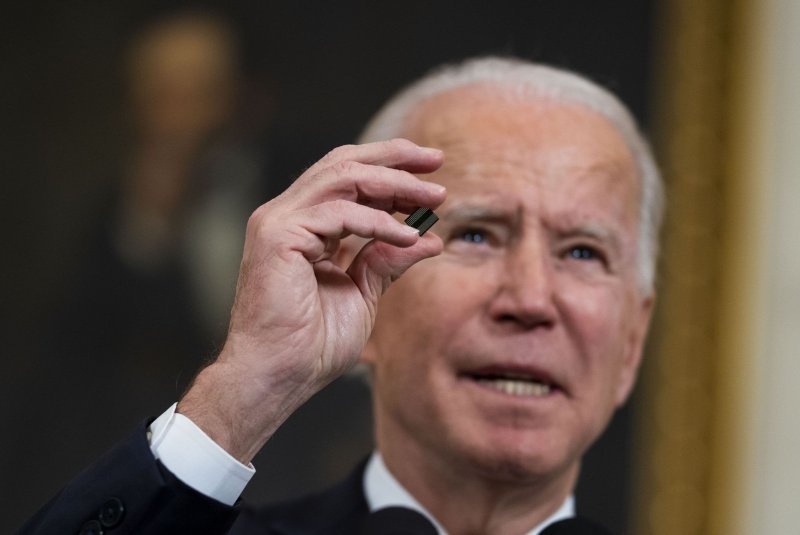
People observe the changing of honor guards in front of Chiang Kai-shek Memorial Hall at the Liberty Square in Taipei, Taiwan in October. Photo by Ritchie B. Tongo/EPA-EFE
Dec. 22 (UPI) — China has reacted angrily to the White House’s approval of $295 million in arms sales to Taiwan, according to a release Saturday from the Chinese Foreign Ministry in Los Angeles.
President Joe Biden authorized up to $571 million in U.S. Defense Department military education and training funding for Taiwan, which Beijing argues is its territory and should come under Chinese control. The DoD approved the $295 portion of the allocation on Friday.
“This seriously violates the one-China principle and the three China-US joint communiqués,” the ministry said in a statement.
The statement said the United State’s decision to supply arms to Taiwan is at the heart of China’s core interests.
“To aid Taiwan independence by arming Taiwan is just like playing with fire and will get the US burned, and to use the Taiwan question to contain China is doomed to fail,” the statement said.
China called on the U.S. to stop arming Taiwan that it says will undermine peace and stability in the Taiwan Strait. It threatened to “take all measures necessary to firmly defend national sovereignty, security and territorial integrity.”
Taiwan welcomed the U.S. funding and said in a social media post that it will use the money to continue strengthening its self-defense and bilateral security ties while bolstering Indo-Pacific peace.
The State Department said Taiwan will use the money to upgrade its computer systems and buy command and control communications systems.
Taiwan earlier this month called on China to end its military activity in nearby waters, which it said undermined peace and stability and disrupted international shipping and trade.
President-elect Donald Trump has said the U.S. would not commit to defending Taiwan if China invades it during his presidency. He has also compared the United State’s defense of Taiwan to an insurance policy and said that Taiwan should pay the U.S. for defending it against China.







